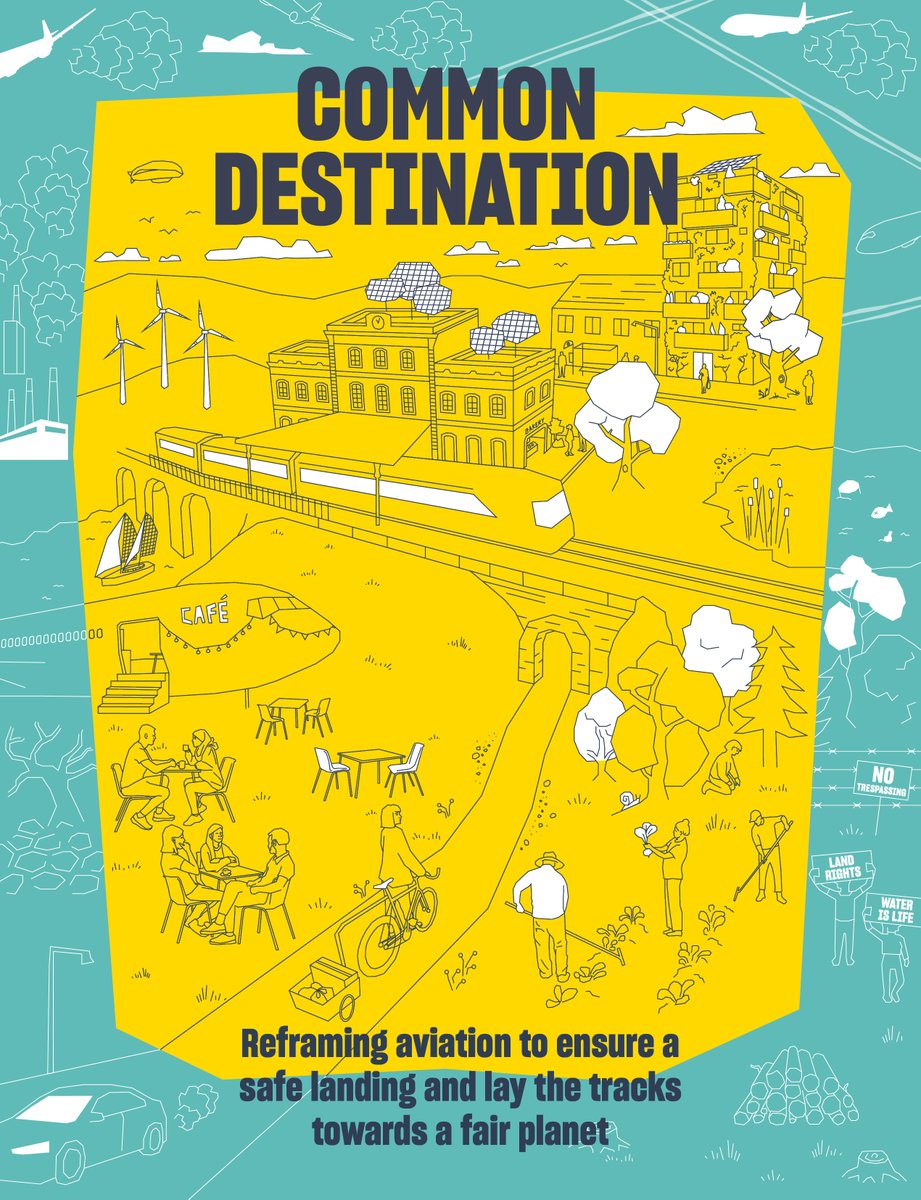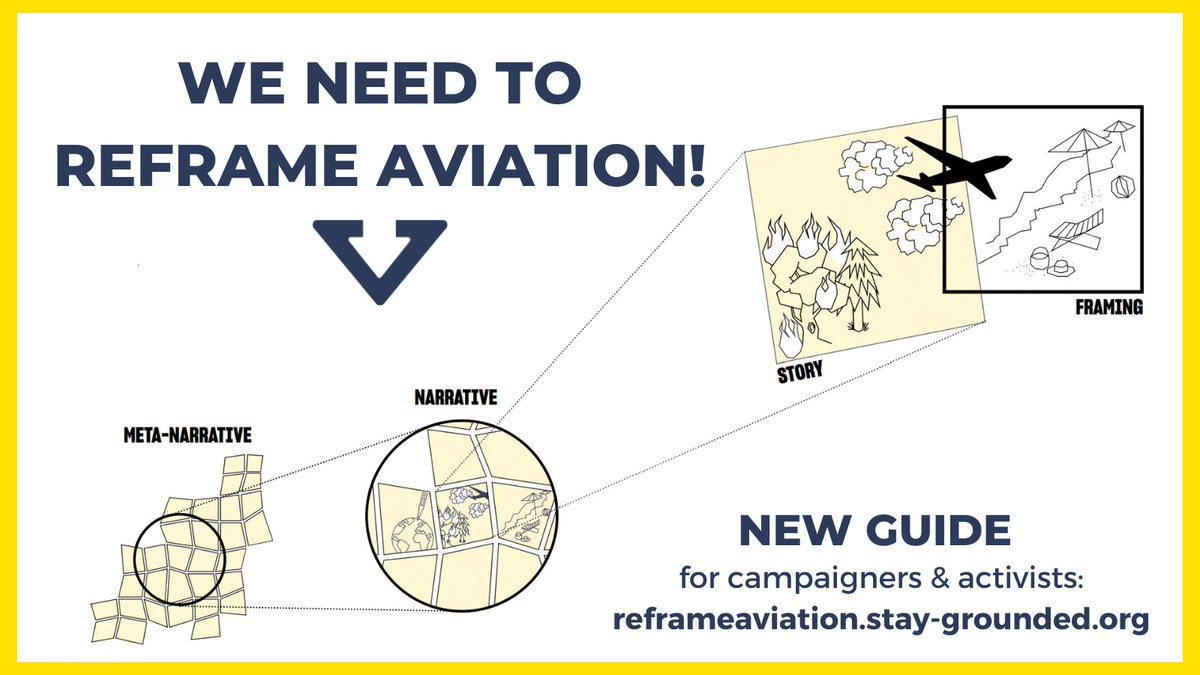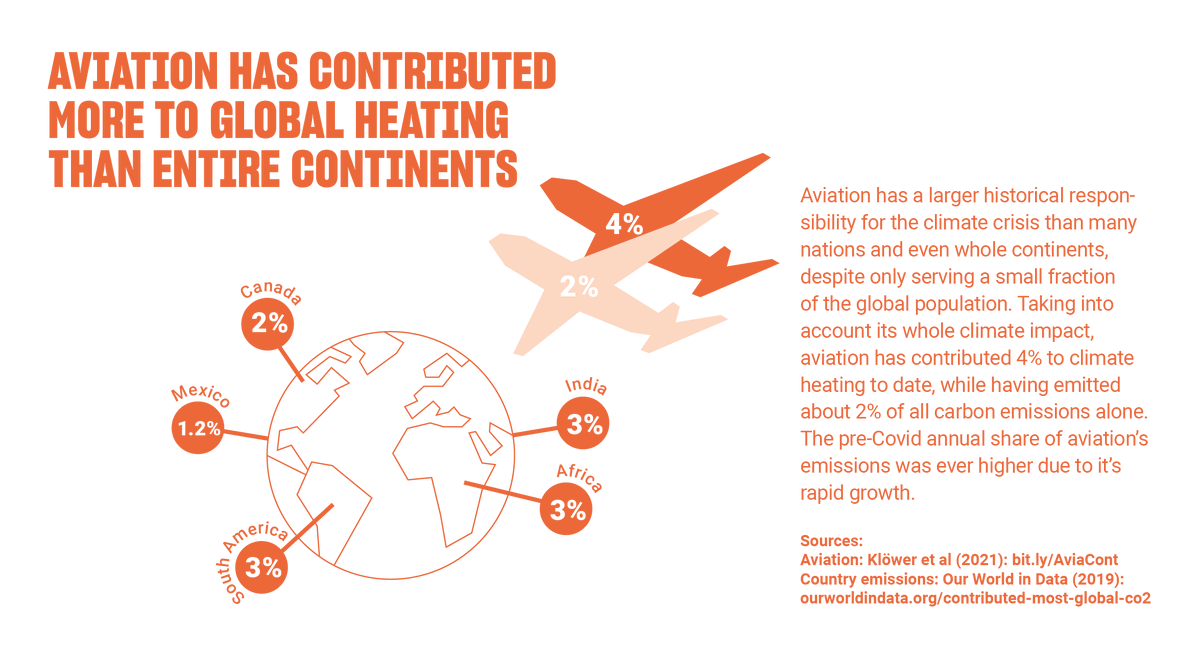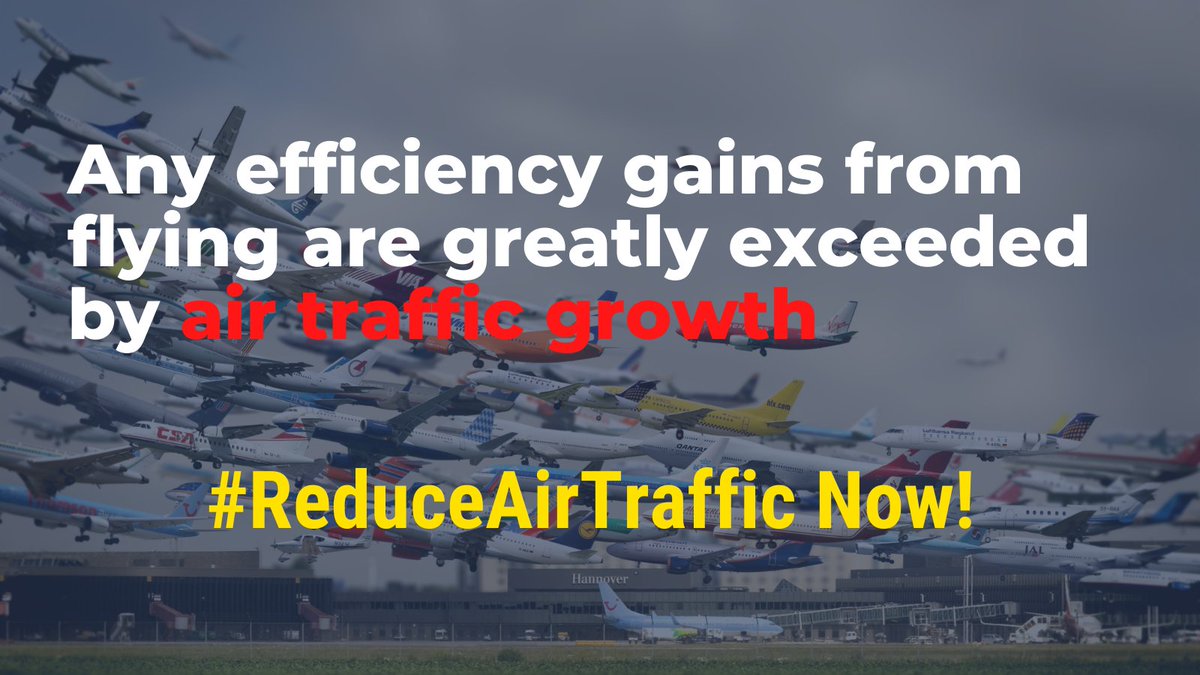
We need new narratives to reduce aviation and lay the tracks for a fair planet!
Today we release our new reframing guide: #CommonDestination
It's a powerful toolbox for activists and campaigners working on #ClimateJustice and sustainable mobility. #ReframeAviation
#Thread 1/8
Today we release our new reframing guide: #CommonDestination
It's a powerful toolbox for activists and campaigners working on #ClimateJustice and sustainable mobility. #ReframeAviation
#Thread 1/8

The first chapter of #CommonDestination guide offers an introduction to transformative communication: how can we reframe issues like air traffic to reveal their polluting reality?
Read the chapter: reframeaviation.stay-grounded.org/chapter-1/
2/8
Read the chapter: reframeaviation.stay-grounded.org/chapter-1/
2/8

Air traffic is the most unjust mode of transport - to #ReframeAviation is a matter of #ClimateJustice.
Check out the second chapter of #CommonDestination for the latest facts on air traffic and its impacts: reframeaviation.stay-grounded.org/chapter-2/
3/8
Check out the second chapter of #CommonDestination for the latest facts on air traffic and its impacts: reframeaviation.stay-grounded.org/chapter-2/
3/8

The aviation industry has been spending billions to #greenwash its image. We need to counter their old narratives to achieve a #JustTransition.
In chapter 3 of #CommonDestination you will find five new narratives that you can use to turn the tide: reframeaviation.stay-grounded.org/chapter-3/
4/8
In chapter 3 of #CommonDestination you will find five new narratives that you can use to turn the tide: reframeaviation.stay-grounded.org/chapter-3/
4/8

New narratives can contribute to change only if they reach enough people. In the last chapter of #CommonDestination, you will find practical tips and tricks useful for new activists as well as experienced campaigners to improve your communication: reframeaviation.stay-grounded.org/chapter-4/
5/8
5/8

Our journey to #ReframeAviation starts today!
You can find the whole #CommonDestination guide as a PDF on our website: reframeaviation.stay-grounded.org/download/
In addition, there is a complete interactive online version: reframeaviation.stay-grounded.org
6/8
You can find the whole #CommonDestination guide as a PDF on our website: reframeaviation.stay-grounded.org/download/
In addition, there is a complete interactive online version: reframeaviation.stay-grounded.org
6/8

We developed the guide together with the great @NewWeatherInst. We also translated it into German (by @robin_wood) - and French (@ResistanceCC) and Spanish (@ecologistas) will follow soon.
You can already find the German version on our website: reframeaviation.stay-grounded.org/download/
7/8
You can already find the German version on our website: reframeaviation.stay-grounded.org/download/
7/8

Want to learn more and spread the guide's info and narratives?
First step: retweet this thread.
Second step: join our reframing journey and sign up for our free communication trainings (in ENG, GER, ESP, FR): stay-grounded.org/training/
Our #CommonDestination? #ReframeAviation!
First step: retweet this thread.
Second step: join our reframing journey and sign up for our free communication trainings (in ENG, GER, ESP, FR): stay-grounded.org/training/
Our #CommonDestination? #ReframeAviation!

• • •
Missing some Tweet in this thread? You can try to
force a refresh











